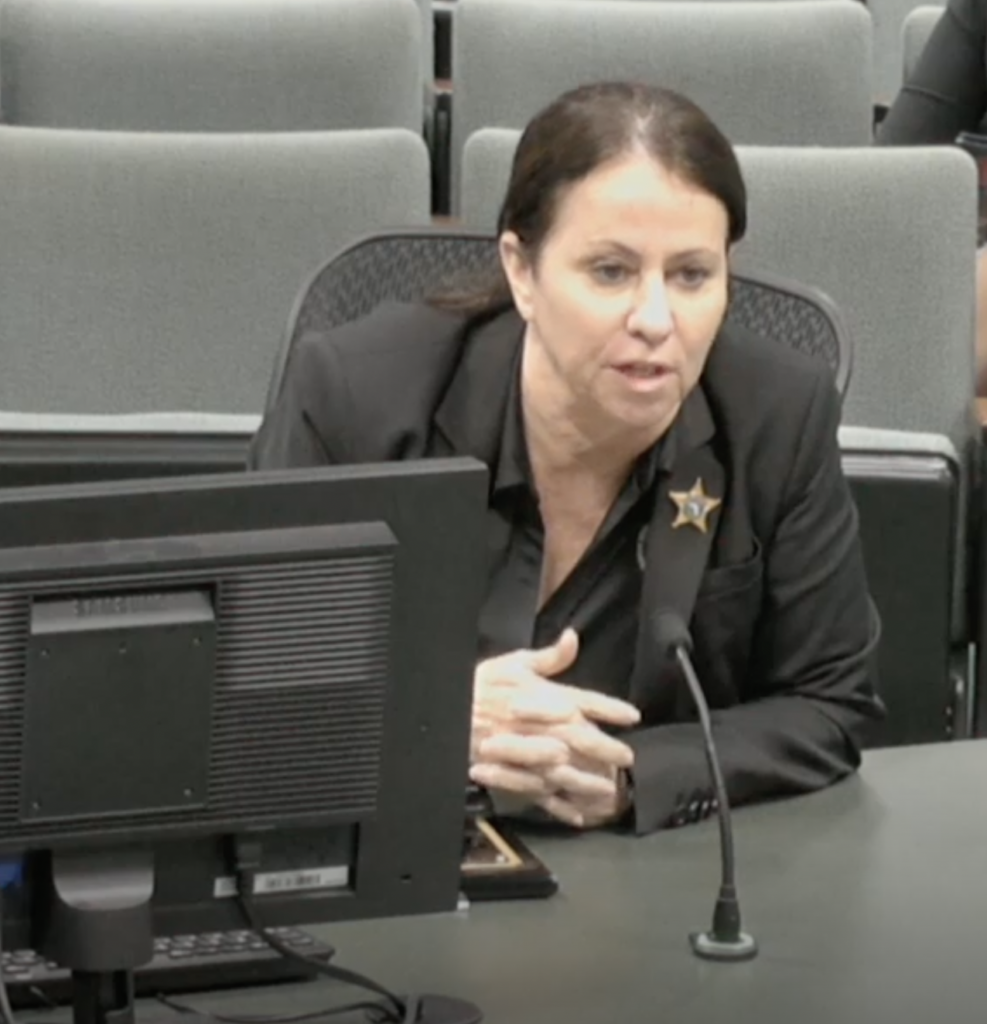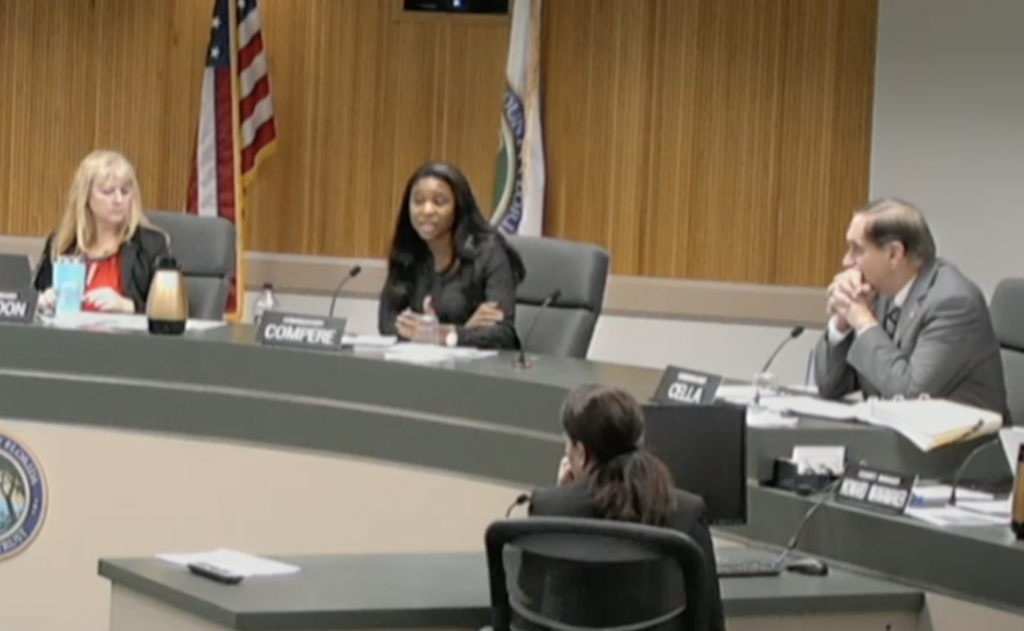Clay County bans all roadside solicitations

Clay County commissioners passed an ordinance banning pedestrians from asking for money on roadways during their Jan. 10 meeting.
Sheriff Michelle Cook said the county’s prior ordinance on panhandling was unenforceable because it allowed some organizations to ask motorists for money while prohibiting individuals from doing the same.
“I’ll just use the fire department for their MDA telethon (as an example),” she told commissioners. “They would stand in the roadway— in the right of way— and go to people’s windows and ask for money. Then the next guy comes in the next day and says, I need $5 for whatever.”
Cook added that courts have ruled that local governments cannot allow freedom of speech for some groups while denying it for others.
“So, either the behavior is going to be allowed for everybody or nobody,” she said, “and because of the safety risks, especially because a lot of these panhandlers are standing at our high-frequency crash locations, we erred on the side of safety and said nobody could stand out there and wave signs on the rights of way.”
Cook said that for those organizations now prohibited from seeking donations on roadways, her agency would work with them to find alternatives.
A drastic step
However, that offer was not good enough for Commissioner Alexandra Compere, the sole commissioner who voted against the measure.
“I think it’s a drastic step to eliminate all of it,” she said. “I hear what the concern is: safety. Of course, our responsibility is public safety. That’s not lost on me. I just think that if our concern is that we cannot enforce the ordinances as they are on the books now, then a step in this direction is a step to completely remove it from the table, and I don’t know if there’s a middle ground that we have not yet explored.”

Commissioner Jim Renninger said the new ordinance is a response to citizen complaints.
“This is an outcome of public outcry to stop this soliciting money along the highway,” he said. “I mean, it’s distracting. Some of the panhandlers could get aggressive, and our public didn’t like that. So, this is one of the actions we’ve taken to thwart this type of activity.”
Violators of the ordinance could be charged with a misdemeanor, punishable by up to 60 days in jail and a fine of up to $500.
Challenged and upheld
Commissioner Kristen Burke added that the prohibition does not apply to private property, so organizations holding car washes in business parking lots or other fundraising efforts would not be affected by the new law.
Compere countered that, based on her personal experience, getting permission from private property owners for fundraising activities is not easy.
“I’ve been there,” she said. “I’ve been in that situation where those private businesses are saying: ‘No, and you can’t do that here.’ And that’s after you’ve gone through six or seven different other people before you could actually get a response. So, I’m struggling here when we are talking about the fundraising efforts.”
County Attorney Courtney Grimm said she based the Clay County ordinance on a similar one in Lee County. She added that the Lee County law had been challenged and upheld.
Traveling gypsies
Board Chair Betsy Condon said several North Florida counties are struggling with responding to panhandlers and homeless residents.
“All are wrestling with this issue and are looking at adopting something similar to Clay County,” Condon said. “In fact, the city of St. Augustine has implemented a homeless court, which is much like drug court. And so instead of just picking them up and taking them to jail, they’re putting them through these programs.”
Condon added that Duval County has implemented a dual strategy for the homeless and panhandlers, offering help to local people in need while simultaneously chasing away what she called “traveling gypsies.”
Compere said she agreed with her colleagues on discouraging panhandling but that the ordinance goes too far. She added that implementing a sweeping law and then making accommodations in the future for legitimate nonprofits is unrealistic.
“I agree about the untoward characters we’re looking to discourage here,” she said. “I think we’re all on the same page about that, but they’re not whom I’m thinking about primarily with something like this. It’s broad, it’s sweeping, and we’re talking about making a firm decision of no solicitation whatsoever and then hoping that we can walk it back at some point in the future. For me, at this point, that’s illusory.”
